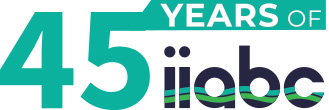Approved Changes to the Drinking Water Conservation Plan (DWCP)
Purpose of the DWCP
The DWCP is a regional plan that promotes water conservation and manages how residents, businesses, and member jurisdictions use drinking water during periods of high demand — mostly during late spring to early fall — as well as during water shortages and emergencies. It is implemented through member jurisdictions’ bylaws and each member is responsible for monitoring and enforcing the restrictions in their communities.
Purpose of Updating the DWCP
As you know this past summer our region experienced a record-breaking heatwave that resulted in unprecedented sustained high water use. Our daily water consumption hit 1.79 billion litres on June 27, just shy of the 2 billion litre all-time high set in 2009. The region also experienced sustained high water use above 1.5 billion litres per day, for 40 days, compared to the average of only 15 days during a typical summer. This summer we were fortunate that we could meet these high water demands due to the high snowpack, which we can’t rely on every year.
The heatwave highlighted the reality of the climate emergency and changing weather conditions, and the need for more proactive measures to secure the water supply. The long-range climate projections show that our region can expect longer summer dry spells and decreased winter snowpack, limiting summer water availability. Reduced lawn watering has been the most effective way to reduce seasonal demand for water and save treated drinking water for where it is needed most: for cooking, cleaning, and drinking during the dry summer months. With healthy lawns requiring only 1 hour of watering or rain per week, Metro Vancouver decided to update the DWCP to reduce lawn watering from two days to one day per week to reduce overall and seasonal demand for water.
DWCP Changes
New Stage 1 lawn watering periods:
- Residential:
Even-numbered addresses on Saturdays and odd-numbered addresses on Sundays:
- Automatic watering – from 5 am to 7 am
- Manual watering – from 6 am to 9 am
- Non-residential:
Even-numbered addresses on Mondays and odd-numbered addresses on Tuesdays:
- Automatic watering – from 4 am to 6 am
- Manual watering – from 6 am to 9 am
The proposed changes, combined with a strong education and enforcement program, will help reduce seasonal water demand and offer a number of regional benefits, including financial savings, potential deferral of major infrastructure projects, greenhouse gas reductions and operational flexibility for environmental flows.
Resources
Official Notice: Membership Fee Changes – Effective January 1, 2026.
Oct 02, 2025
Meeting Notes Available
IIABC Annual Awards – Nominations Open! Nominate Today
May 13, 2025
We are excited to host the First Annual IIABC Awards Night — an evening to recognize excellence and celebrate the achievements of individuals and companies in the irrigation industry.
Annual Membership & Certification Fee Renewal
Jan 07, 2025
Annual Membership and Annual Certification Fee renewals are now due for payment.
Upcoming Registration Notice
Jan 13, 2023
Registration will be opening soon, see the posted dates for future offerings.
IIABC Annual General Meeting
Nov 22, 2022
The IIABC Annual General Meeting will be held virtually on Dec 14th at 1:30pm. Information including a zoom link
WATER LICENCES FOR AGRICULTURE
Jan 27, 2022
Water licences are required to divert and use and/or store water from both surface and groundwater sources in British
COVID-19 Information
Mar 10, 2020
The following Links can help you begin the process of navigating the new realities of operating your business during the COVID-19 Pandemic.
Continuing Education Units and Certification Fees
Jan 10, 2018
The Certification Board has therefore asked the Board of Directors to implement an annual certification fee. The Board of Directors has accepted this request and the new fee will be implemented for 2018.
